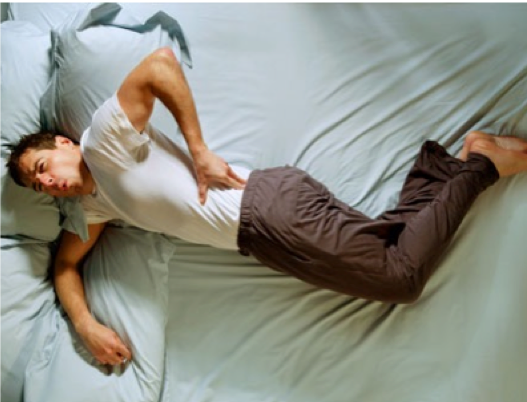SHARES

Until 1986, the well-intentioned advice, after the onset of acute low back pain is to rest in bed. Since then, observations demonstrated this advice to be unhelpful to recovery. A growing body of high-quality trials and systematic reviews show otherwise. On the contrary, staying active with usual activities, including work and hobbies, aid in low back pain recovery instead.
A 1996 Finnish study on low back pain found that persons who continued activities, without bed rest recover better. These patients appeared to have better back flexibility than those who rested in bed for a week. Other studies suggest that bed rest alone may make back pain worse. Additionally it can lead to secondary complications such as depression, decreased muscle tone, and blood clots in the legs.
The Right Way To Alleviate Back Pain
During the first 2 – 3 days after the initial injury, it is still essential to avoid any activities or movements that aggravate it. It is likely inflammation (swelling) is present in the joint or tissues in the low back, much like the swelling of the ankle joint after a sprain.
Appropriate ‘first aid’ management includes ice pack treatment, short-doses of anti-inflammatory medication (e.g. ibuprofen), and intermittent resting breaks of no longer than 30 mins in the day time. At night, patients may side-lie with a pillow between the knees, or under the knees if lying on the back.
Prolonged Rest bed will not help back pain recovery
Prolonged bed rest has been shown to be unhelpful. Instead, people suffer from higher levels of pain, greater disability, poorer recovery and greater absence from work. In fact, it appears that the longer you stay in bed because of back pain, the worse your pain becomes. Continuing with work and daily activities may initially cause pain and discomfort. However, by managing it well and with gradual pacing, the recovery process is actually quicker than a long rest in bed.
Conclusion
A consultation and proper assessment with a qualified health-care professional, such as an osteopath, will ensure that you receive an accurate diagnosis and manual treatment to lessen the pain and discomfort. Your healthcare professional can also individually tailor advice to help you manage the back pain, in order to ensure the quickest possible recovery.
Acknowledgement: This article is contributed by The PainFree Clinic 10 Sinaran Drive #09 – 09 Novena Medical Center, Singapore 307506
You can search, find, call, send enquiry or request for appointment with an Osteopath on GetDoc:
Find an Osteopath in Singapore, on GetDoc
by Yashwini Ravindranath
Born & raised in Malaysia, Yashwini earned her M.D. studying in Moscow's Russian National Research Medical University. With an affiliation towards research, all things coffee and the startup ecosystem, she now contributes articles to GetDocSays View all articles by Yashwini Ravindranath.





